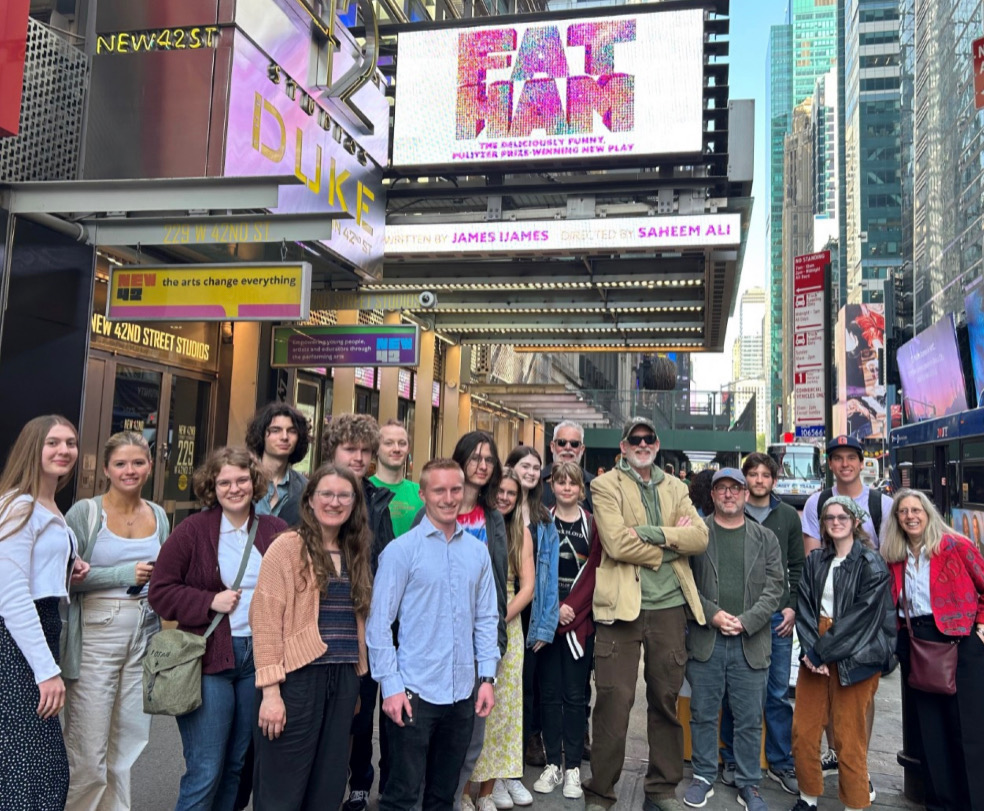English Class Sees Broadway Show “Fat Ham” to Apply In-Class Learning
By Laurel Bennett, Staff Writer

Professor Fee’s Class in New York (Photo Provided)
On April 20, Professor of English Christopher Fee took students in ENG 310: “The Dane Abides: The Many Faces of ‘Hamlet,’ from Pre-Modern Folklore to Post-Modern Stage” to see “Fat Ham” on Broadway.
“Fat Ham” is the 2022 Pulitzer Prize winning reinterpretation and reformulation of “Hamlet.” The show maintains many original elements of “Hamlet,” yet it centers around a young, gay, African-American protagonist serving on a Royal Court in the American South.
The opportunity to see “Fat Ham” on Broadway gave students a way to apply what they learned throughout the semester and to form connections between the two works.
Fee explained the focus of his course.
“We place Shakespeare’s play in the context of its literary and historical setting, as well as develop our understanding of the key themes and issues of the play by exploring its sources and analogues,” Fee said. “This goes back into early Medieval Scandinavian stories, from the Danish works of Saxo Grammaticus and the ‘History of the Kings of Lejre,’ to the Old English ‘Beowulf’ to the Middle English ‘Havelock the Dane,’ and even including the work of Dante.”
This background allowed students to apply important themes to a modern play. These themes included issues of power, hierarchy and gender. “Fat Ham” presents deeper cultural and theatrical subtexts not seen in “Hamlet.” Fee explained that students have worked to unpack these subtexts during the remainder of the semester.
Attendee Elissa Clancy ’23 appreciated the opportunity to see “Fat Ham” on Broadway.
“I found it fascinating how the play could still incorporate elements of the original Shakespeare play while making it more adaptive and engaging towards a modern audience,” Clancy said. “‘Fat Ham’ production related to our class so much, with many modern elements and technological references from the 21st century.”
